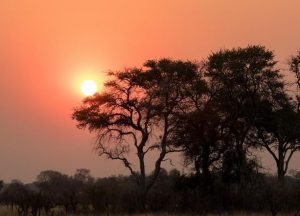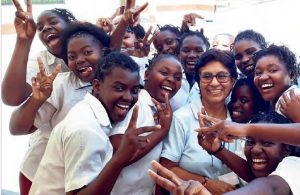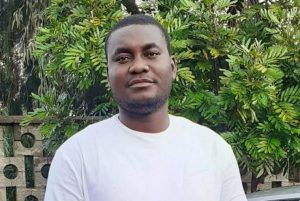A group of religious from different congregations risk their lives opposing the indiscriminate exploitation of natural resources and the violations of tribal rights in Mindanao.
Sister Famita Somogod of the Missionary Sisters of Mary, 48, has been risking her life every day since she became coordinator of the Rural Missionaries’ project of the Philippines. Religious from different congregations are fighting to defend the environment and the rights of the indigenous peoples on Mindanao, an island in the Philippines. Founded in 1969 by the mothers superior of women religious congregations – the Group of the Rural Missionaries – which now also includes lay people, promotes social projects in rural areas and opposes exploitation of natural resources by companies and corporations. The acquisition of property of indigenous communities, often by force, has been happening for decades on the island and companies and corporations have raided the forest to export timber or and large-scale crops such as palm oil.
Underground mining for the extraction of gold and copper on the island affects the delicate ecosystem in which the local people have lived for centuries. Primeval forest that once covered valleys and plains can now only be found in the southern region of Mindanao island due to the wide scale deforestation that has taken place. Sister Fatimer who joined the Missionary Sisters of Mary in 1996 said “The rights of these communities have been systematically violated. I felt that their demand for peace and justice could not be ignored. My life changed when I realised that the defence of the population and the environment could not be separated. If I wanted to help people, I had to fight next to them in order to try and prevent abuses such as land grabbing, looting of the forest and use of pesticides”.
Over the last ten years the Rural Missionaries have documented several human rights violations against tribal groups including the killing of 47 people, five of whom were community leaders. Religious are also engaged alongside the indigenous people to help ensure that laws designed to protect both, national protected areas and the ancestral rights of the indigenous peoples, are implemented. By law the indigenous groups should be able to decide how to manage the resources in their territory. “Rules protecting Philippine indigenous people are systematically circumvented by agreements between companies and local institutions”, Sister Famita complains “Timber, agribusiness and mining companies share the land, ignoring the communities who have always lived there. This breaks the delicate balance between man and nature”. Laudato Si (Praised be you), Pope Francis’ environmental encyclical has become the Rural Missionaries’ point of reference. “It is a light leading our way which makes us feel less lonely”, says Sister Famita. “Loneliness, in fact, is the most usual feeling we experience when we denounce the abuses perpetrated in this land. Despite the requests to change things and alert the authorities when rules have been broken, things have not changed: companies continue to acquire, drill and exploit the land at the expenses of the population”. However, the work that Rural Missionaries have carried out over recent years has drawn the attention of the international community “We are working on two projects in favour of the indigenous peoples of Mindanao, one is supported by the European Union and the other one by UNHCR (the UN Refugee Agency) – the religious explains – we are also carrying out a campaign on climate justice, to ask the government to pledge support for drought affected farmers”. Despite difficulties, Sister Famita, would still make the same choice. “Someone told me that a religious had better care for souls and not for social issues, but I felt that God was asking me to show my love for people concretely, and I trust my intuition”.






